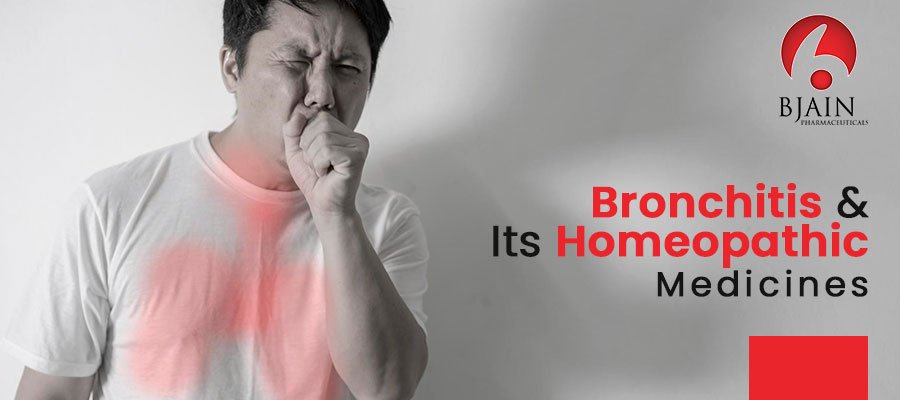It can be defined as an inflammatory condition of bronchi which is the tubular structures of the lungs that helps in transfer of air from outer world to the functional unit of lungs i.e. alveoli, singular alveolus. The alveoli facilitate the gas exchanges within environment and body.
Bronchi may get inflamed and become full of mucus due to variety of reasons. Their swelling can cause major issues in the normal functioning of the respiratory system.
What are the types of Bronchitis?
It can be of two types depending on the duration and onset of disease. Most commonly people get acute bronchitis and it can be of viral origin. But chronic bronchitis may also have been seen in some people and their causes can be various.
- Acute Bronchitis: The onset of acute bronchitis is sudden and it may last for few weeks and get resolved on its own. It is mostly an impact of viral infection and cough may be present for some time. For most people treatment is not required.
- Chronic Bronchitis: If some have a persistent cough for consecutive three months out of a year then it can be ruled out for bronchitis. It should be present for at least 2 years. Chronic Bronchitis comes under the umbrella of a better-known disease Chronic Obstructive Pulmonary Disease (COPD). You should always consult your physician to rule out such possibilities.
What are the risk factors for Bronchitis?
Anyone can get affected by Bronchitis but certain habits and factors make you more susceptible. These are the following risk factors:
- If you smoke or someone around you does.
- Predisposition to asthma or any other breathing disorder
- You have Gastro-esophageal reflux disorder (GERD)
- Have any inflammatory disorder or auto-immune conditions
- Exposure to severe air pollution of industrial smoke
What are the symptoms of Bronchitis?
The primary sign of bronchitis is a chronic cough typically continues for up to three weeks. For those who cough from bronchitis, also often produce mucus, but you may experience a cough with no pus instead. Additionally, you may wheeze, which is a crackling or rattling sound made as you breathe.
Other symptoms that you may experience include:
- Dyspnea, or difficulty of breath.
- Fever.
- Runny nose.
- Fatigue or weariness.
How can you prevent the risk of Bronchitis?
Avoiding viral infections and other lung irritations is the best method to lower your risk of developing bronchitis. Here are some specific strategies to lower your risk:
- If you or anybody else seems ill, try to stay away from them. When people congregate indoors during the cold, this is particularly true.
- Steer clear of irritants like smoke.
- Steer clear of any triggers, such as dust, pollen, and dogs, if you suffer from asthma or allergies.
- Turn on a humidifier. Your lungs are less likely to become irritated by moist air.
- Make sure you get enough sleep.
- Consume a nutritious diet.
- Use soap and water to wash your hands frequently. Use an alcohol-based hand sanitizer if you are unable to use just water and soap.
What are the Homeopathic medicines for Bronchitis?
Homeopathy follows the principle of individualistic approach in its treatment. These are the following medicines that are frequently indicated in the cases of bronchitis.
This treatment is frequently recommended for dry, excruciating coughs. Any movement makes them feel worse, and they might even need to press against their chest or clutch their sides to stay motionless. The cough may cause disrupted digestion and stomach pain. People frequently have extremely dry mouths and may also be thirsty. Bryonia is probably needed by someone who prefers to be isolated when sick, unbothered and unspoken to.
This medicine may be necessary if you have a deep, harsh, racking cough that is indicative of bronchitis. The person may cough continuously in an attempt to release the mucus that they believe is lodged in their throat and upper chest. It may become raw and painful, or it may feel like a boulder is lodged inside. Fever can be accompanied with chills. The cough gets worse when exposed to cool air, but it can be relieved by drinking something cold. On clear, cold days, people may feel worse; on rainy days, they may feel better.
This treatment may help with bronchitis symptoms like a heavy chest and coughing up thick yellow mucus while choking and gagging. Usually, the cough is stiff and dry at night and lax in the next morning. At night and in the evening, the fever can be severe. Being stuck in a stuffy place or feeling overheated tends to exacerbate the condition, but being outside improves it. Usually there is little thirst. A person in need of this cure is frequently emotional and temperamental, and they seek sympathy and attention.
This treatment is recommended when respiration produces a bubbling, rattling sound and the patient feels as though their chest is filled with wet mucus. However, burping and spitting can be helpful, coughing requires effort and is frequently insufficient to bring up mucus. The person may experience light-headedness or drowsiness and feel better sitting up or sleeping on their right side.
Calcarea carbonica
This treatment is frequently recommended for post-cold bronchitis. It can be a bothersome, tickling cough that gets worse when you lie down or stoop forward, gets worse when you feel cold, and gets worse at night. Adults may experience increased coldness, sweaty hands and feet, difficulty breathing while climbing stairs or hills, and generally low stamina.
This medicine may be recommended when the weather shifts from hot and dry to damp and cool, or when a person becomes quickly ill after getting wet and chilled. Physical activity might exacerbate the cough, which can be loose, hoarse, and tickly. An individual’s vulnerability to bronchitis may be exacerbated by a tendency toward allergens (cats, pollen, etc.)
This medicine is typically used for hoarse, rattling coughs that produce yellow mucus. The individual may be highly sensitive to cold; coughing fits may be triggered by simply a small draft or extending a limb out from beneath blankets. Cold beverages or food might exacerbate the situation.
Kali bichromicum
This medicine may be indicated by a metallic in nature, brassy, whooping cough that begins with a bothersome tickle in the upper respiratory tubes and produces threads of thick yellow mucus. Coughing may cause pain above the breastbone or radiating to the shoulders, and a feeling of coolness may be experienced inside the chest. When a person sleeps, their breathing may generate a rattling sound. Early in the morning, after eating and drinking, and after being outside, problems are usually worse. The finest feeling is simply staying warm while resting in bed.
Conclusion:
Bronchitis is a serious disorder and a very common issue considering the pollution levels in many major cities. It can be very troubling due to irritation in respiratory tract and mucus formation. Homoeopathic medicines act on the underlying issue that results in disease rather than just targeting the material cause only. BJain Pharmaceuticals offers high quality medicines with impeccable action and consistency in quality.

Dr Aditi
Dr Aditi (BHMS) from NHMC Delhi, HMO ( Chandigarh Administration), Ex- SRF ( CCRH ), currently doing a research study of effect of Homoeopathic medicines in Mother and Child Health care in Chandigarh.


